
The reports draw from consumer studies which show data on the destinations travellers want to visit, the kind of holidays they want in 2022, and how much they’re willing to spend.
NB: This is an article from Triptease
While the data here is focused largely on European customers, these trends are likely to be reflected globally. We’ve condensed the information in Google’s reports into four key insights that hoteliers should consider as they plan their direct booking strategy for 2022.
Subscribe to our weekly newsletter and stay up to date
1) Travel demand remains strong
Travel queries are significantly higher in Western Europe than they were at the start of 2021. In the UK, Germany, and Italy online travel queries are now close to where they were in 2019, while in Spain and France they currently exceed 2019 levels.
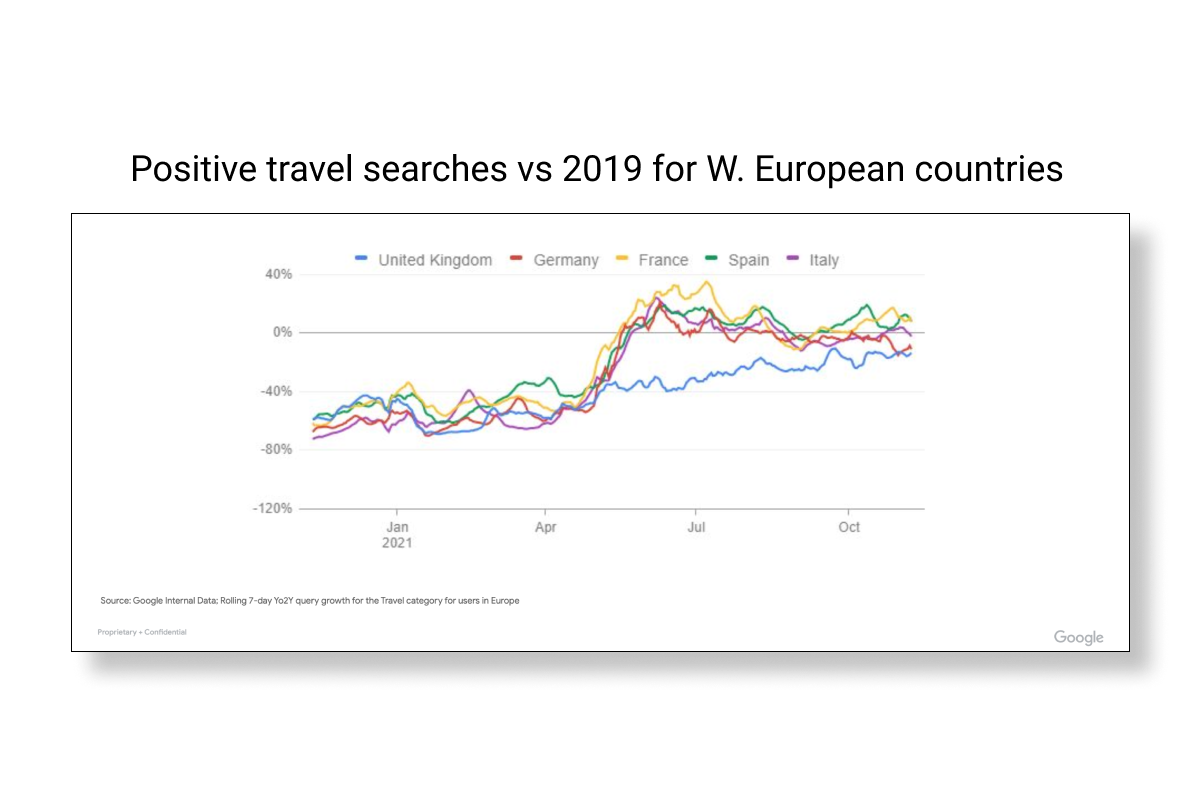
Searches specifically for hotels gradually increased throughout 2021 and surpassed 2019 levels towards the end of the year. Significantly, hotel searches are on course to catch up with camping and vacation rental searches.
These two accommodation types have been many customers’ preferred choice over the course of the pandemic as they offer more opportunity for space and social distancing. These results are just one more indication that consumer preferences are continuing to shift as the pandemic develops, with this change indicating that 2022 will be the year that more balance is restored to your customers’ accommodation preferences.
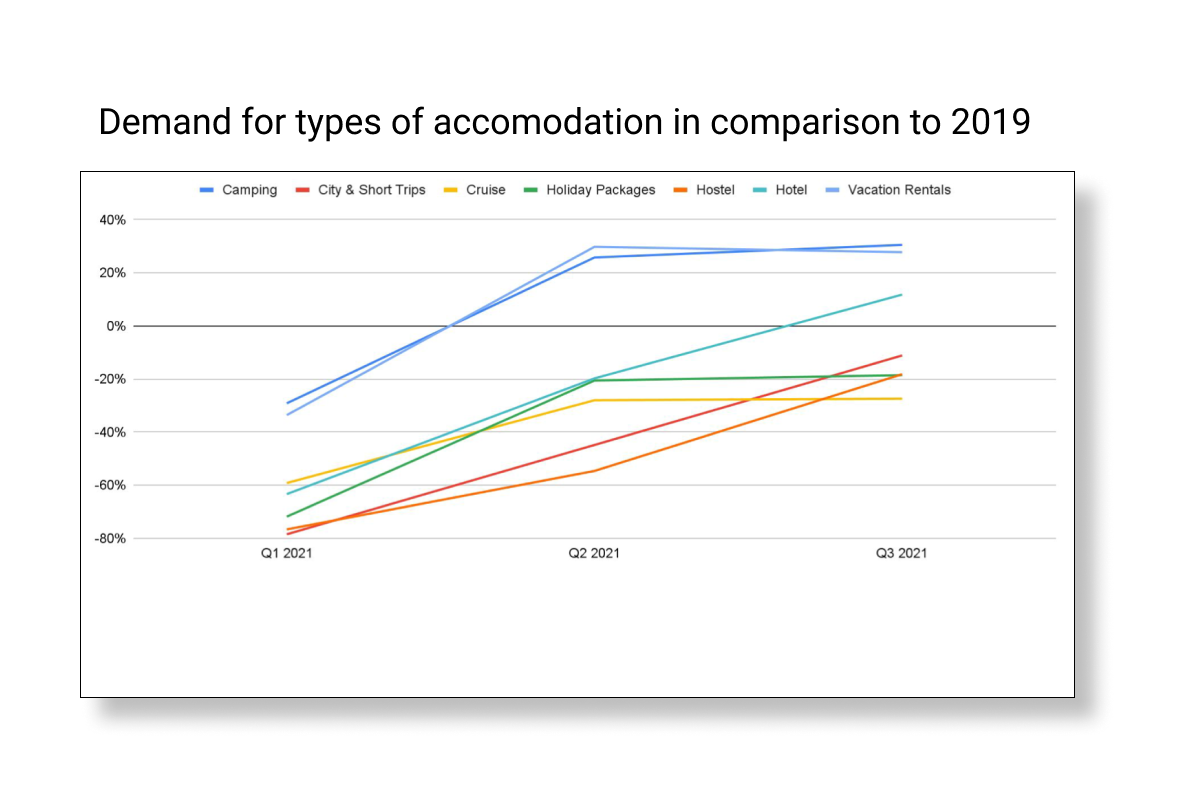
It’s clear the travel industry can be confident that demand for travel will be strong in 2022. However, whether this demand translates to increased booking numbers is dependent on whether new restrictions are introduced and whether case numbers remain stable.
2) Focus on comfort, convenience, longer stays and social distancing
Results from an internal Google consumer study show that in comparison to their main holiday in 2019, in 2022 the respondents would be willing to ‘spend more on comfort and & convenience’, ‘stay for longer’ and to avoid ‘[meeting] people’. These results were consistent across the UK, Germany & the Netherlands. This shows that customers might be trying to make up for disrupted travel plans last year with luxury in their 2022 holidays, while still wanting to avoid social mixing beyond their close friends and family.
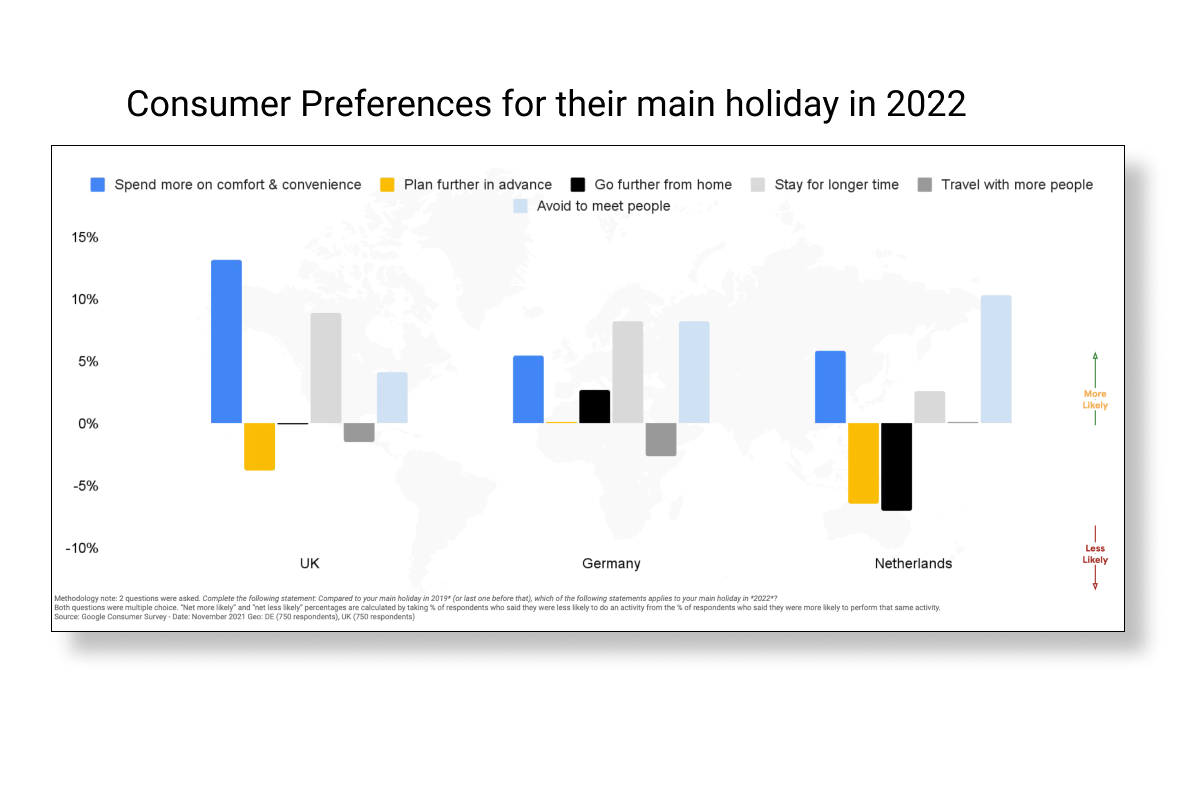
3) Customers are ready to travel internationally in 2022
The majority of consumers surveyed by Google have an intent to travel abroad for their main holiday in 2022. This ranged from 78% of respondents in the Netherlands, 66% in the UK & 56% in Germany.
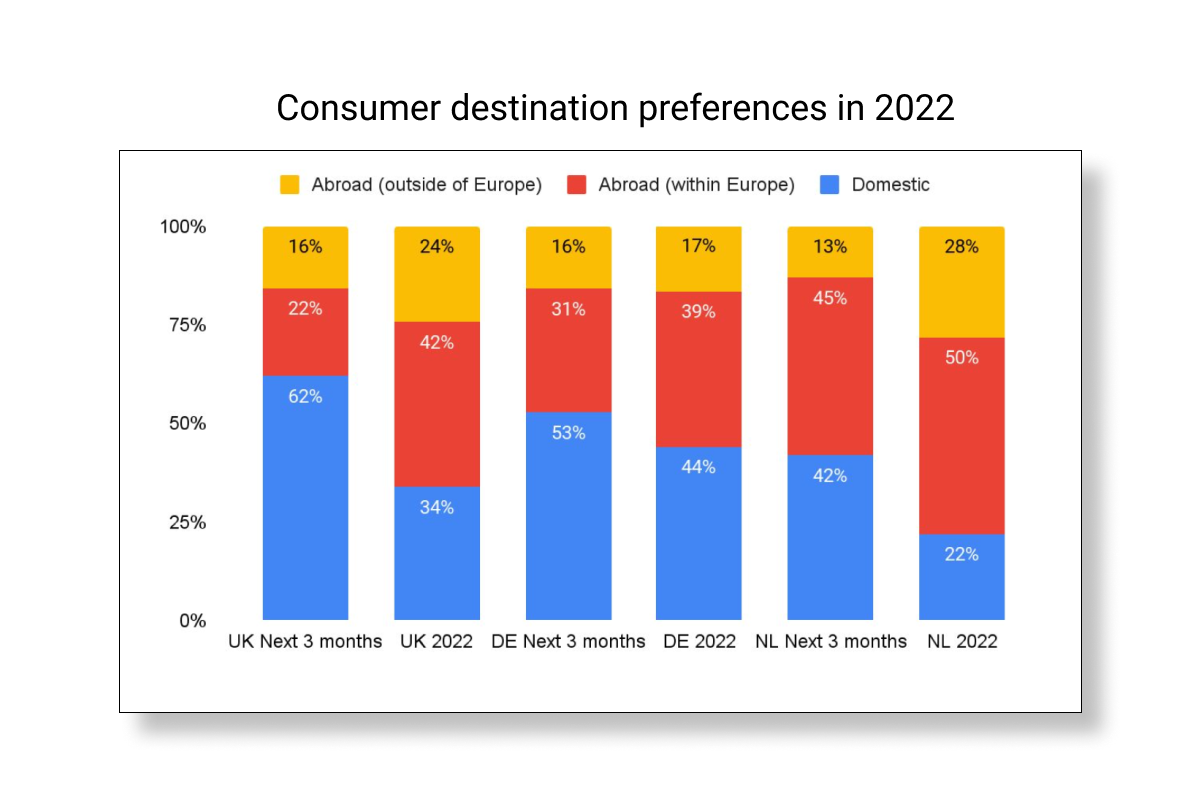
This means that it’s time to start thinking about how best to engage your international audiences again.
4) Consumer loyalty is up for grab
Customers in all three countries covered by the survey have no specific brand preference.
Additionally, of the survey respondents in Germany who will be booking their main holiday of 2022 before March, 40% were already researching. This figure for the Netherlands was 34%.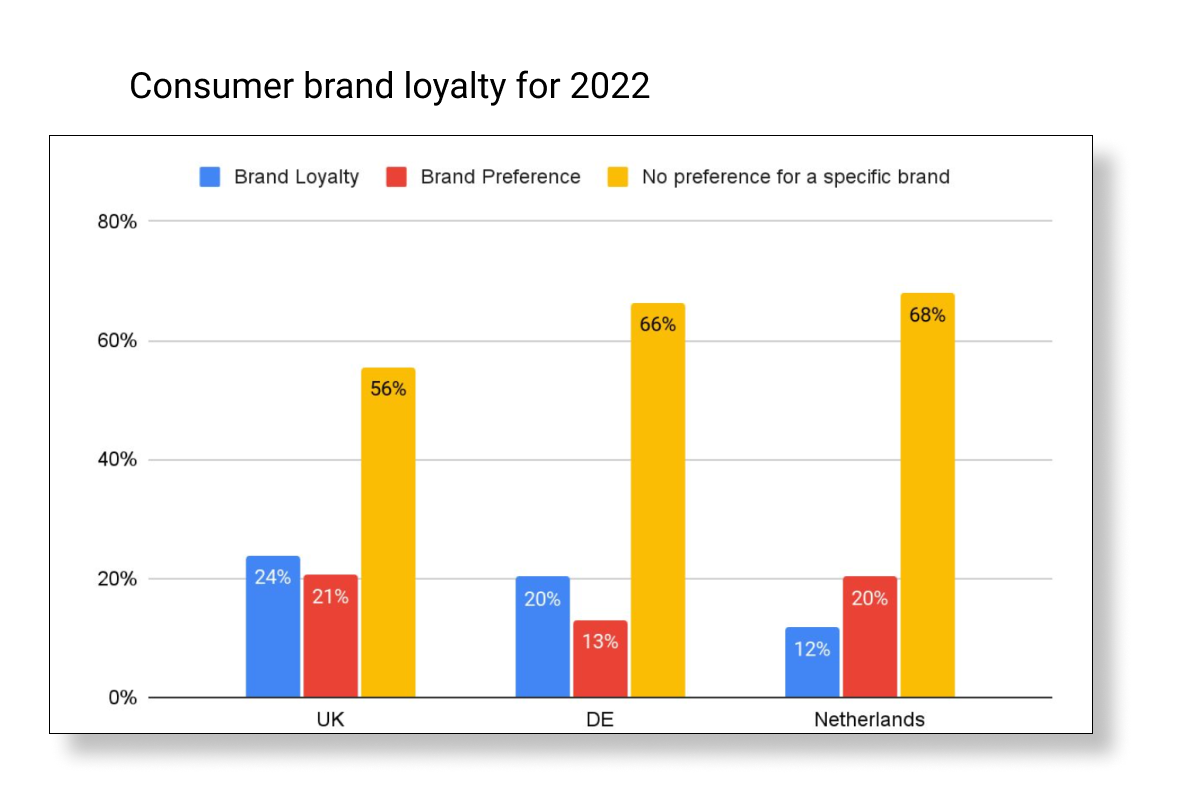
A joined-up direct booking strategy is essential to convincing these undecided guests to book at your hotel. This means it’s vital that your hotel is appearing in search results, with the best price, and that your website is set up to ensure those customers book direct – or return to your direct website when they’re ready to make their booking.
There are lots of positive signs for hoteliers in this data. We know that customers are searching online about travel and that they want to spend their money. Also, now that we know what customers are looking for in 2022, hoteliers can adapt their marketing to appeal to these trends. Though it’s clear that travel restrictions and infection spikes remain a problem, we know that the demand for hotels is there.




